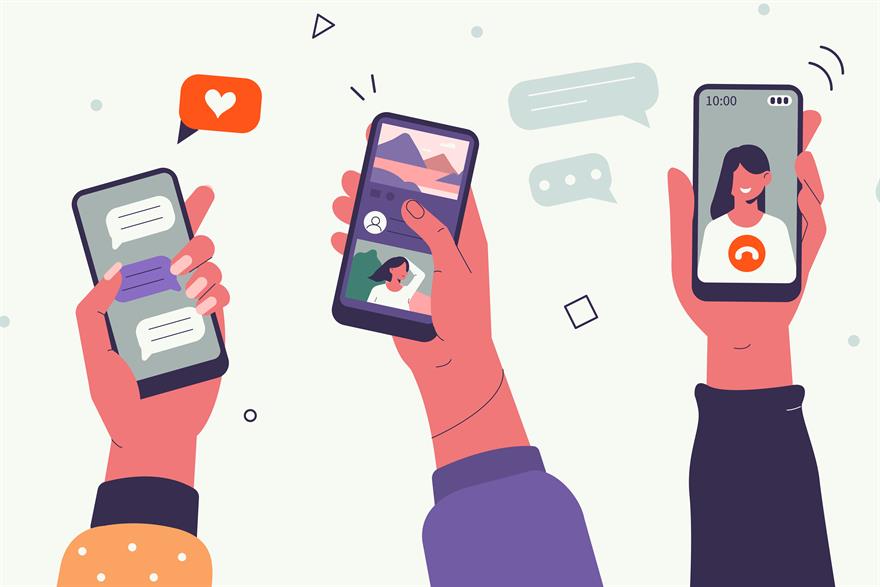The explosion of social networking and the ubiquitous sharing and posting of so much information online that have changed the way we communicate. Cyber Ethics refers to the code of responsible behavior on the Internet. According to Webster’s II New College Dictionary (1995), ethics is the rules or standards governing the conduct of a person or the members of a profession. As Winn Schwartau stated “ethics is also about understanding how your actions will affect other people”.
The cyber world has become a most important part of our everyday lives. We spend an increasingly significant portion of our lives in it and use it to communicate with friends, acquaintances, loved ones, and business associates. We make use of our computers and Internet connectivity to look for and purchase all kinds of goods and services. We make airline and other travel reservations through this medium we call the World Wide Web. We look through weather forecasts in planning our daily lives, including our recreation, travel activities and social functions. We use the web and all its powerful resources to educate ourselves and to gain knowledge. We are able to look for, join and keep up with special interest groups and to discuss topics of interest to us. We research serious as well as mundane issues on line.
While this has undeniable benefits, there can also be negative consequences. Anonymous posting to blogs, websites and social media can encourage bad behavior by eliminating the need to stand behind the words used. A significant issue of increasing concern is cyber bullying. That was once comments confined to the school yard or hallways are now magnified by the power and anonymity of the Internet. Developments in electronic media offer new forums for bullies, and the actions can range in severity from cruel or embarrassing rumors to threats, harassment, or stalking. The effects can be far-reaching and long lasting.
Below is the list of not exhaustive guidelines including do’s and don’ts to cyber ethics and safety for adolescents, parents and persons belonging from all walk of lives:
DO’S
- Internet is considered as world’s largest library with information on any topic in any subject area, so using this information in a correct and legal way is always essential.
- Respect and protect the integrity, availability, and security of all electronic resources.
- Respect and practice the principles of community
- Respect and protect the intellectual property of others.
- Respect and protect the privacy of others.
- Report threatening or discomforting materials to teachers, agencies etc.
- Do use the Internet to help you do your school work.
- Do use the Internet to learn about music, video and games.
- Do use the Internet to communicate with friends and family.
- Do encourage your children to use the Internet.
- Do communicate in ways that are kind and respectful
- Install or download software, if also in conformity with laws and licenses

DON’TS
- Don’t copy information from the Internet and call it your own. Music, video, games and copyrights
- Don’t use the Internet to communicate with strangers.
- Don’t pretend to be someone else.
- Don’t be rude or use bad language.
- Don’t give anyone personal information or passwords.
- For parents, don’t leave your children unsupervised.
- Not distribute private information about others or themselves.
- Not destroy or damage data, networks, or other resources that do not belong to you, without clear permission of the owner.
- Not intentionally access, transmit, copy, or create material that violates law and code of conduct (such as messages that are pornographic, threatening, rude, discriminatory, or meant to harass).
- Not send spam, chain letters, or other mass unsolicited mailings.
- Do not use rude or offensive language.
- Don’t be a bully on the Internet, call people names, lie about them, send embarrassing pictures of them, or do anything else to try to hurt them.
- Do not break into someone else’s computer and use someone else’s password.
- Never try to send any kind of malware to other’s systems and make them corrupt.
- Never share your personal information to anyone as there is a good chance of others misusing it and finally you would end up in a trouble.
- When you’re online never pretend to the other person, and never try to create fake accounts on someone else as it would land you as well as the other person into trouble.
In summary, cyberspace has become an interactive world that many of us have fully integrated into our lives. We should all employ the basic tenets of Cyber Ethics to be good “cyber citizens. Cyber ethics refers to the code of responsible behavior on the Internet. Just as we are taught to act responsibly in everyday life with lessons such as “Don’t take what doesn’t belong to you” and “Do not harm others,” we must act responsibly in the cyber world as well.
Recommendations
The ease and anonymity by which we are able to perform all and many more of these feats of contact and access with an entire universe of places and people have created a dilemma: a lack of cyber ethics. This issue threatens all of us and introduces a whole set of ethical and legal issues for business people, scientists, parents, educators, children and law makers. Below are a few recommendations to become a good cyber citizen:
1- Cyber ethics must be taught and reinforced at every level of computer use from the novice user just learning to navigate a computer and the Internet, to an information professional whose job requires significant use of online resources. In the same way that each culture teaches its citizens the ethics of business, education, government, etc.
2- The basic rule is “Do not do something in cyberspace that you would consider wrong or illegal in everyday life.”
3- Develop code of cyber ethics for businesses, organizations, schools, colleges etc. with the help of experts and strictly adhere to it.
4- Grievance redressal mechanism should be framed and made effective within businesses, organizations and educational institutions etc.
5- Early training is imperative for Aristotle. As he says, “it makes no small difference, then, whether we form habits of one kind or another from our very youth, it makes a very great difference, or rather all the difference”.
6- Rules should be framed by Government to certify educational institutes that they have an Internet safety policy and that they are using filtering to block visual images that are obscene, child pornographic, or harmful etc.




